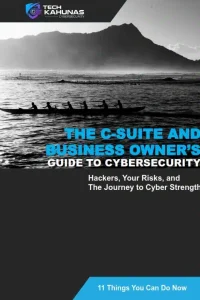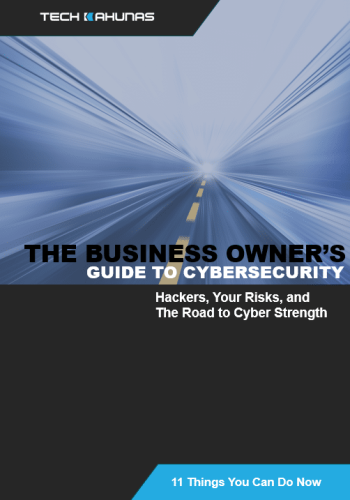Securing biotech innovation necessitates stringent CMMC compliance to enhance data protection and uphold federal contract success. The CMMC framework, with its five levels, mandates precise cybersecurity controls to safeguard sensitive information. Thorough gap analyses, compliance roadmaps, and risk assessments are essential for aligning with regulatory standards. Implementing robust data encryption, stringent access controls, and employee cybersecurity training fortifies organizations against threats while ensuring ethical adherence. Regular audits and continuous monitoring bolster compliance, increasing competitiveness for federal opportunities. Maintaining an unwavering commitment to these protocols not only protects intellectual property but also fosters trust and positions companies favorably for further insights.
Key Takeaways
- Achieving CMMC compliance enhances biotech firms' eligibility for federal contracts by ensuring robust cybersecurity measures.
- Compliance with CMMC safeguards sensitive biotech data, protecting intellectual property and competitive advantage.
- Regular audits and risk assessments ensure ongoing adherence to CMMC standards and identify areas for improvement.
- Strong access controls and data encryption are crucial for protecting sensitive biotech innovations from unauthorized access.
- Cybersecurity training fosters a compliance culture, preparing employees to recognize and respond to cybersecurity threats effectively.
Understanding CMMC Requirements
Understanding the Cybersecurity Maturity Model Certification (CMMC) requirements is essential for biotech companies aiming to secure federal contracts and safeguard sensitive information. This extensive framework is designed to enhance the protection of sensitive data in the federal supply chain by establishing standardized cybersecurity practices.
The CMMC framework is structured across five distinct levels, each corresponding to a set of progressively sophisticated cybersecurity controls and processes. For biotech entities, aligning with these levels, particularly the ones applicable to their operations, is important for demonstrating due diligence in protecting Controlled Unclassified Information (CUI).
Implementing effective compliance strategies is critical for traversing the CMMC framework successfully. Biotech companies must first conduct a thorough gap analysis to assess current cybersecurity measures against the CMMC requirements. This analysis should inform the development of a detailed compliance roadmap, outlining necessary upgrades to policies, procedures, and technologies to meet the desired CMMC level.
Additionally, ongoing monitoring and continuous improvement should be embedded into the compliance strategies to adapt to evolving threats and regulatory changes. By doing so, biotech firms not only fulfill contractual obligations but also fortify their cybersecurity posture, ensuring resilience in the face of sophisticated cyber threats.
Importance of Compliance in Biotech
In the biotech sector, adherence to regulatory standards is critical to guarantee the integrity and reliability of innovative processes and products.
Compliance with frameworks such as CMMC is essential for protecting sensitive data, which is often a target for cyber threats, thereby safeguarding intellectual property and maintaining competitive advantage.
Implementing rigorous compliance measures not only aligns with legal obligations but also enhances trust among stakeholders and fosters sustainable growth within the industry.
Regulatory Standards Necessity
Regulatory standards serve as the backbone for compliance within the biotech industry, ensuring that innovations not only advance scientific understanding but also adhere to stringent safety and ethical guidelines. Maneuvering through the regulatory landscape presents compliance challenges that can impede progress if not strategically managed. Data protection remains paramount, with industry standards requiring robust protocols to safeguard sensitive information. The complexity of these standards often creates innovation barriers, compelling organizations to invest in thorough risk management strategies.
| Aspect | Description |
|---|---|
| Compliance Challenges | Maneuvering through complex regulations, ensuring adherence to industry standards. |
| Risk Management | Implementing strategies to mitigate potential compliance-related risks. |
| Funding Implications | Securing financial resources, often contingent on meeting regulatory criteria. |
Audit processes are integral, providing a structured approach to evaluate compliance and identify areas for improvement. These processes are critical in aligning with funding implications, as financial support is frequently contingent on meeting regulatory criteria. Technology integration plays a pivotal role, facilitating efficient compliance tracking and reporting. Engaging stakeholders is essential for fostering a collaborative environment where regulatory adherence is prioritized, ensuring that biotech innovations remain viable and impactful. By understanding and addressing these elements, organizations can effectively maneuver through the complex regulatory landscape, ultimately enhancing their capacity for successful biotech innovation.
Protecting Sensitive Data
While the biotech industry continues to revolutionize scientific frontiers, protecting sensitive data remains an essential aspect of regulatory compliance. Guaranteeing data integrity and confidentiality is paramount, necessitating robust compliance frameworks.
Data encryption is a foundational measure, transforming sensitive information into secure formats that unauthorized entities cannot decipher. Access controls further bolster security by restricting data availability to only authenticated users, minimizing exposure to potential breaches.
Cybersecurity training for employees is important, fostering an informed workforce capable of recognizing and mitigating threats. Regular risk assessments are significant in identifying vulnerabilities within systems, providing a basis for effective threat detection and remediation strategies.
Implementing extensive incident response plans guarantees rapid containment and resolution of breaches, thereby safeguarding essential data assets. User authentication processes form the backbone of secure data exchange, necessitating precise verification mechanisms that confirm user identities.
Information governance plays a critical role, establishing policies and procedures to manage data responsibly throughout its lifecycle. By adhering to these meticulous standards, biotech firms can not only protect sensitive data but also gain a competitive edge in securing federal contracts.
Ultimately, a steadfast commitment to regulatory compliance fortifies trust and fosters innovation in this transformative industry.
Steps to Achieve Compliance
Achieving CMMC compliance in the biotech sector necessitates a thorough understanding of specific regulatory requirements, which serve as the foundation for any compliance strategy.
Organizations must implement robust security measures tailored to protect sensitive data and maintain the integrity of biotech innovations.
Additionally, conducting regular audits is essential to guarantee ongoing adherence to compliance standards and to identify any areas that require improvement or remediation.
Understand Compliance Requirements
Steering through the intricate landscape of compliance requirements is essential for organizations aiming to align with the Cybersecurity Maturity Model Certification (CMMC) standards, particularly in the biotech innovation sector. Understanding the nuances of compliance frameworks is indispensable for achieving certification and safeguarding sensitive information.
Organizations must first conduct a thorough risk assessment to identify vulnerabilities within their systems. This assessment forms the foundation for developing a robust compliance strategy tailored to meet CMMC specifications.
CMMC compliance involves adhering to a tiered model of cybersecurity practices, each level building upon the previous one. Organizations in the biotech sector must familiarize themselves with the specific controls and processes required at each level, ensuring they align with federal contract obligations.
Detailed documentation of cybersecurity processes and policies is critical, serving as evidence of compliance and readiness for audits.
Furthermore, the biotech sector must stay informed about updates to compliance frameworks, which evolve in response to emerging threats. Engaging with experts or consultants specializing in CMMC standards can provide valuable insights and guidance.
Implement Security Measures
Establishing thorough security measures is an essential step for biotech organizations seeking CMMC compliance. This begins with implementing robust data encryption protocols to protect sensitive information both at rest and in transit.
Strong access controls must be established to guarantee that only authorized personnel can access critical data and systems. By incorporating advanced threat detection mechanisms, organizations can proactively identify and mitigate potential vulnerabilities before they are exploited.
A detailed risk assessment is crucial to understand and address potential security threats. Regular software updates should be conducted to guarantee that all systems are fortified against the latest security vulnerabilities.
Network security must be prioritized by deploying firewalls and intrusion detection systems to safeguard against unauthorized access and data breaches.
Employee training is a critical component of security measures, guaranteeing that all staff members are aware of cybersecurity best practices and potential threats.
Additionally, a well-defined incident response plan should be in place to swiftly address any security breaches or incidents, minimizing potential damage.
Conduct Regular Audits
Regular audits are an indispensable component of achieving CMMC compliance for biotech organizations. They serve as a critical mechanism for evaluating the effectiveness of implemented security measures and guaranteeing adherence to regulatory standards. The audit frequency should be strategically determined, taking into account the organization's risk profile, regulatory requirements, and operational changes.
Regularly scheduled audits enable organizations to identify vulnerabilities and implement corrective actions before they escalate into significant compliance breaches.
Audit methods should be thorough and tailored to the organization's specific operational environment. They must include both internal and external assessments, utilizing a combination of manual reviews and automated tools to guarantee complete coverage of all compliance aspects.
Internal audits focus on evaluating the organization's own security protocols and processes, while external audits provide an objective review by third-party experts. These audits must be meticulously documented, with clear records of findings, recommendations, and any actions taken in response.
Biotech companies must guarantee their audit processes are robust and aligned with CMMC guidelines. This strategic approach not only bolsters security posture but also instills confidence among federal contracting agencies, thereby enhancing the organization's potential for securing federal contracts and fostering innovation within a framework of regulatory compliance.
Implementing Effective Security Measures
To effectively implement security measures within the framework of CMMC compliance, biotech organizations must meticulously assess and fortify their cybersecurity infrastructures. A thorough risk assessment is essential to identify vulnerabilities and prioritize the protection of sensitive data. This involves threat modeling to anticipate potential cyber threats and deploying data encryption to safeguard information integrity both in transit and at rest.
Access controls are paramount, ensuring that only authorized personnel have access to critical systems and data. Implementing robust security policies and procedures can guide the organization in maintaining compliance and safeguarding assets.
Regular employee training is indispensable, equipping staff with the knowledge to recognize and respond to cybersecurity threats effectively.
An integral part of security infrastructure is a well-defined incident response plan. This plan should outline the steps to be taken in the event of a security breach, ensuring swift containment and mitigation of damage.
Additionally, vulnerability management is vital, involving regular scanning and patching of systems to protect against emerging threats.
Common Challenges and Solutions
Maneuvering the complex landscape of CMMC compliance in the biotech sector often presents a myriad of challenges. One primary challenge is effective data management amidst evolving regulatory requirements. Guaranteeing data integrity and confidentiality demands robust risk assessment practices. This involves identifying vulnerabilities and implementing extensive cybersecurity measures.
Cybersecurity training is another vital aspect, as it fosters employee awareness and instills a strong compliance culture within the organization. Regular training sessions equip staff with the necessary skills to recognize and respond to potential threats.
Vendor collaboration poses its own set of challenges, as third-party partners must align with CMMC standards. This necessitates stringent vetting processes and ongoing audits to confirm compliance throughout the supply chain.
Technology integration can also be an intimidating task, as legacy systems may not seamlessly support new security protocols. Investing in scalable and secure technology solutions is essential for maintaining compliance.
Incident response readiness is essential for managing breaches effectively. Establishing a well-defined incident response plan guarantees swift action, minimizing potential damage.
Maximizing Federal Contract Opportunities
Successfully addressing the challenges of CMMC compliance positions biotech firms to capitalize on federal contract opportunities. By achieving contract readiness, these firms enhance their eligibility for federal funding and innovation grants. This compliance not only satisfies regulatory requirements but also opens up partnership opportunities with government agencies, fostering an environment conducive to technology transfer and scientific advancement.
To maximize these opportunities, biotech companies must develop robust proposal strategies that highlight their compliance capabilities and innovative potential. Emphasizing CMMC adherence within proposals can demonstrate a firm's commitment to cybersecurity, a critical factor in government evaluations.
Additionally, crafting proposals that articulate the capacity for collaboration networks can strengthen a firm's position in competitive bidding processes, offering assurance of effective partnership management.
Market access is another crucial consideration. CMMC compliance can serve as a differentiator, allowing firms to penetrate new markets and establish themselves as reliable partners in the federal landscape.
Engaging in strategic collaborations with other compliant organizations can enhance a firm's value proposition, expanding its reach and impact. Ultimately, a proactive approach to compliance will not only secure federal contracts but also bolster the firm's reputation as a leader in biotech innovation.
Frequently Asked Questions
How Does CMMC Compliance Affect Small Biotech Startups?
CMMC compliance affects small biotech startups by enhancing their cybersecurity measures, thereby increasing their eligibility for federal contracts. This compliance can open additional funding opportunities, yet also imposes regulatory challenges that require detailed attention and resource allocation.
What Are the Costs Associated With Achieving CMMC Compliance?
Achieving CMMC compliance involves a cost breakdown encompassing initial assessment fees, implementation expenses, and ongoing monitoring costs. The compliance timeline varies, typically spanning several months, depending on the organization's size and cybersecurity maturity level.
Are There Any Specific CMMC Requirements for Biotech Research Data?
CMMC requirements for biotech research data emphasize data protection and maintaining research integrity. They mandate specific cybersecurity practices, including access controls, incident response, and risk management, to safeguard sensitive information and guarantee compliance with regulatory standards for federal contracts.
Can Non-Compliance With CMMC Impact Existing Federal Contracts?
Non-compliance with CMMC can lead to significant contractual risks, potentially jeopardizing existing federal contracts. It may also limit future opportunities by affecting an organization's eligibility for new contracts, highlighting the importance of maintaining robust regulatory adherence.
What Role Do Third-Party Consultants Play in CMMC Compliance?
Third-party consultants provide essential expertise in managing CMMC requirements, offering tailored compliance strategies to organizations. Their specialized knowledge aids in identifying gaps, ensuring adherence to regulatory standards, and facilitating the successful completion of federal contract obligations.



 Get your CPA firm aquainted with new FTC rules.
Get your CPA firm aquainted with new FTC rules. 




